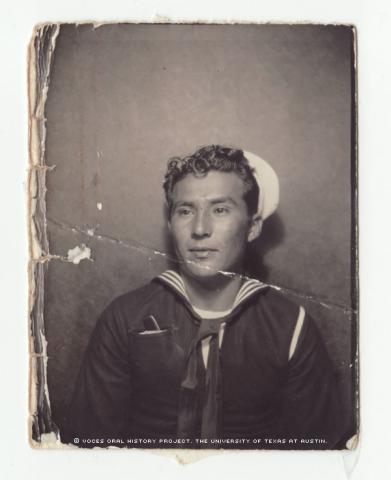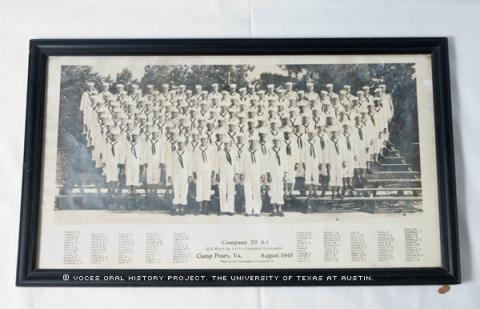


By Andres Quintero
When Guadalupe "Lupe" Loya, Jr. was drafted into World War II, he was working at a Civilian Conservation Corps camp in Wyoming.
Loya returned to his hometown of Beeville, Texas, before heading to San Antonio to meet with some recruiting officers, who told him he'd be a good fit for the Navy.
"I can't read and write as good as you guys," Loya responded, since he had gone to school only through the third grade. "They told me I'd be fine as long as I could shoot a rifle."
Loya spent the next couple months in Virginia, completing his basic training, and then was able to go back to Beeville to spend time with his family before being sent to the Pacific.
"I didn't know what a government battleship was, but I was never afraid," Loya said. "Thank God I was so fortunate."
Loya set sail from California in 1943. He recalled his ship making a stop at Pearl Harbor before continuing to the Philippines.
By that time, Allied forces had already done substantial damage to Japanese fleets in the Pacific, so Loya never took part in battle. Still, he learned how to do a number of jobs while at sea - from mess hall cook to watch duty atop the watch nest at the highest point on the ship.
"You name it, we had to do it," Loya said.
By the time of his May 6, 1946, discharge from Texas' Camp Wallace as a seaman second class, Loya had traveled all through the Pacific and seen the end of World War II.
When he returned to Beeville, Loya started working for a trucking company, driving dump trucks that collected trash for the City of Beeville. He stayed with that company for about 18 years, until it went bankrupt, at which point he became a garbage collector for the City of Beeville. He was also employed by the city as a street worker, fixing and patching roads.
Loya recalled that the city had 42 Mexican Americans working as garbage collectors, as well as two African Americans and two Anglos. He said he never felt discriminated against by his bosses - or any other white people in the city, for that matter.
In fact, he didn't recall personally experiencing any discrimination in Beeville, including while he was growing up on a farm. But he did recall seeing some instances of discrimination against other Latinos.
"They treated me well, just like I treated them," said Loya, who spent the rest of his career with the City of Beeville, eventually working his way up to superintendent of both the garbage and street departments.
"I learned how to work the job well and went up from there, thank God," Loya said.
He and his wife, Julia Guerrero Loya, had their first child within a year of Loya's return from Navy service. Julia stayed home and took care of the kids while he worked. Loya said his 30 years of city employment brought in decent money to support his family. Loya eventually retired, after suffering a stroke.
When asked what advice he would give to young people, Loya said: "Stay in school, work hard and stay off drugs."
Mr. Loya was interviewed by Alcario Alvarado in Beeville, Texas, on Jan. 10, 2009.

